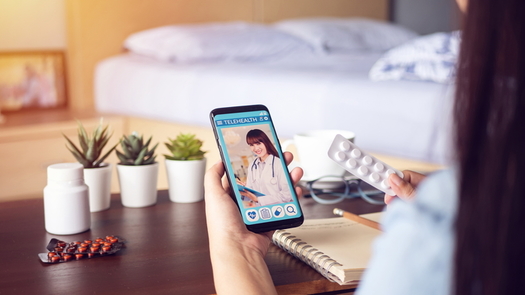CHARLESTON, W.Va. – Spurred by concern that folks battling substance abuse can’t always get in-person treatment during the pandemic, West Virginia is highlighting telehealth options to help providers better support their patients.
At this month’s state social-work convention, Bob Hansen, executive director of the West Virginia Department of Health and Human Resources’ Office of Drug Control Policy, urged treatment providers to get their patients to download its “Connections” app for cellphones.
The app gives folks in recovery a personal touch, from peer support to one-to-one messaging, which Hansen said is especially needed during this time of social distancing.
“There’s been an early study that, really,” said Hansen, “access to treatment has not been dramatically reduced and the good reason has been the use of telemedicine and the technologies.”
A recent study in Appalachia shows women with substance abuse disorders who used the Connections app stayed in treatment longer than those who didn’t.
Although telehealth is a prime support for people with addiction problems during the pandemic, statistics show the number of overdoses since March has risen in West Virginia and across the nation.
To counter this, Hansen pointed out his group is also working to get more Naloxone on the streets.
“We’re working with homeless agencies, health departments and treatment providers to get as much Naloxone out there” said Hansen. “So that, if people are still using drugs and if they overdose, our goal is to save as many lives as possible.”
Emergency medical responses to suspected drug overdoses in West Virginia soared to more than a thousand in May, at the height of the pandemic. In June, the number dropped to about 850, but that’s almost 200 more than the same time last year.


I am not rattling great with English but I come up this real easy to read .